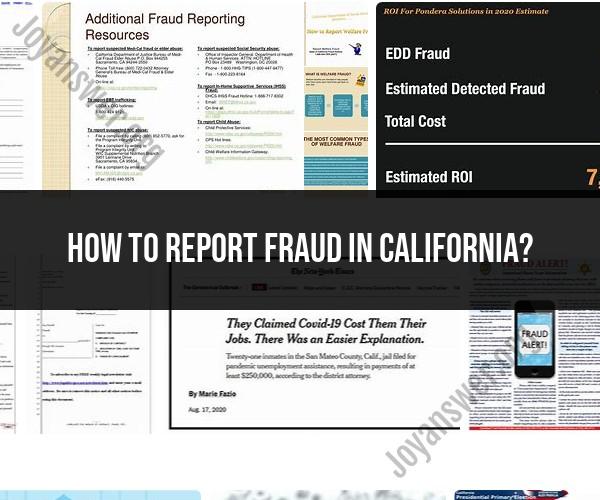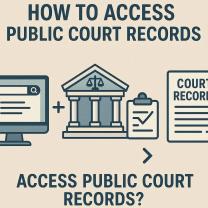How to report fraud in California?
Reporting fraud in California is an essential step in protecting individuals and organizations from fraudulent activities. Fraud can encompass various types, including financial fraud, identity theft, insurance fraud, and more. Here's an actionable guide on how to report fraud in California:
1. Determine the Type of Fraud:
- Identify the type of fraud you want to report. It could be financial fraud, healthcare fraud, consumer fraud, insurance fraud, identity theft, or other types.
2. Gather Information:
- Collect all relevant information about the fraud, including names, addresses, phone numbers, dates, and a detailed description of the fraudulent activity. The more specific and comprehensive your information, the better.
3. Contact the Appropriate Authorities:
Local Law Enforcement: If the fraud is an immediate threat or involves a criminal act, contact your local police department or sheriff's office to report the incident. Provide them with all the details you've gathered.
Federal Agencies: If the fraud involves federal programs or crosses state lines, you can report it to federal agencies such as the Federal Trade Commission (FTC) or the Federal Bureau of Investigation (FBI). You can do this online through their respective websites.
Consumer Complaints: If the fraud is related to consumer products, services, or scams, consider filing a complaint with the California Department of Consumer Affairs (CDA) or the Better Business Bureau (BBB).
Healthcare Fraud: If you suspect healthcare fraud, report it to the California Department of Health Care Services (DHCS) or the California Department of Insurance (CDI), depending on the nature of the fraud.
Identity Theft: Report identity theft to the Federal Trade Commission (FTC) through their IdentityTheft.gov website. This resource also provides a recovery plan for identity theft victims.
Online Scams: If the fraud involves online scams, phishing attempts, or cybercrimes, report it to the California Department of Justice's eCrime Unit and the Internet Crime Complaint Center (IC3).
4. File a Complaint:
- Many government agencies have online complaint forms that you can use to report fraud. These forms guide you through the process and allow you to submit the necessary information electronically. Be sure to provide as much detail as possible.
5. Contact Consumer Protection Organizations:
- Reach out to consumer protection organizations and advocacy groups for additional guidance and support in reporting fraud and resolving related issues.
6. Protect Yourself:
- If you are a victim of fraud, take steps to protect yourself. This may include freezing your credit, monitoring your financial accounts, and changing passwords to secure your personal information.
7. Maintain Records:
- Keep copies of all communication related to the fraud report, including emails, letters, and reference numbers. These records may be useful during investigations or legal proceedings.
8. Be Patient:
- Investigations can take time, so be patient and cooperative with law enforcement and regulatory agencies. Follow up on your complaint as needed to check on the status of the investigation.
Reporting fraud is crucial in preventing further harm and holding those responsible accountable. By promptly reporting fraud, you help protect others from falling victim to similar schemes and contribute to the overall safety and integrity of your community and the state of California.













